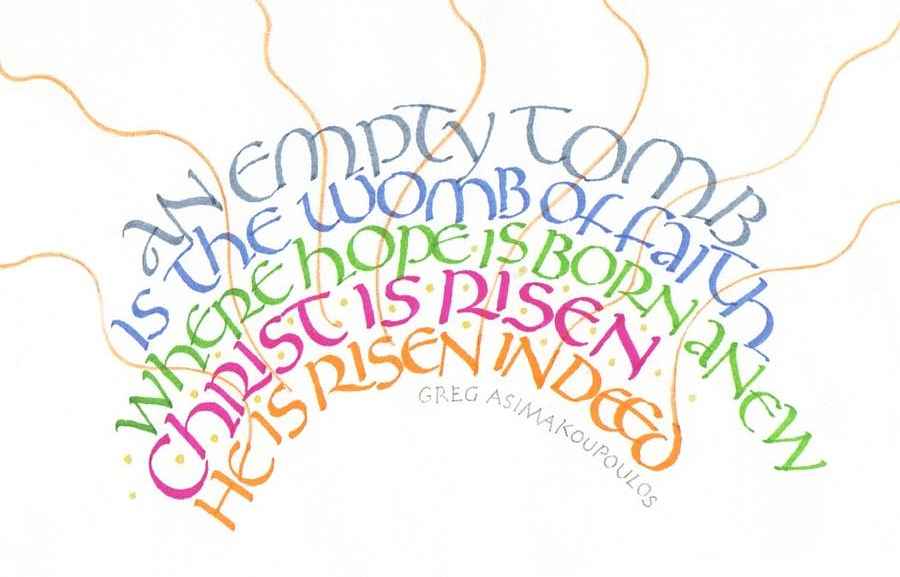
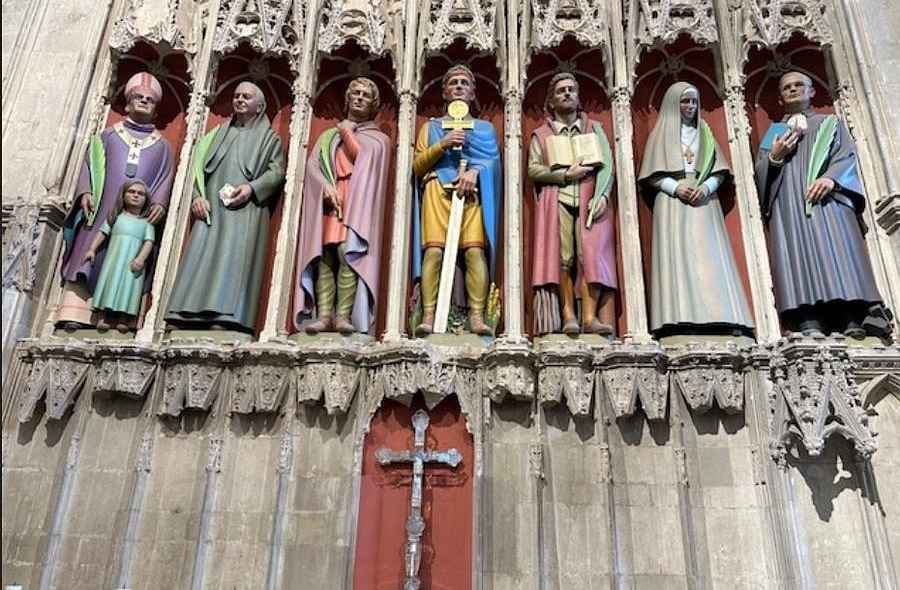
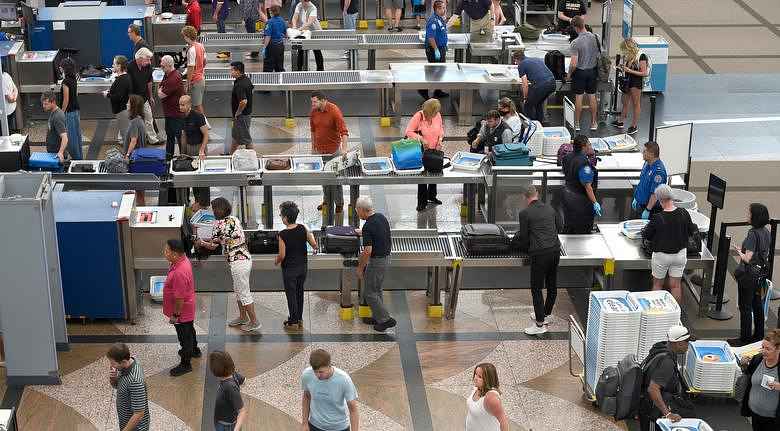

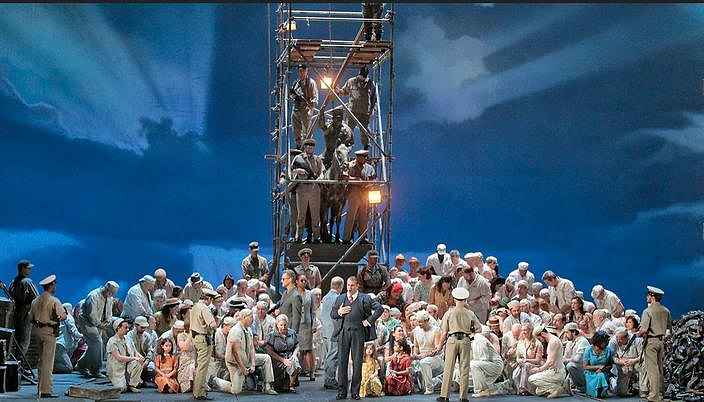
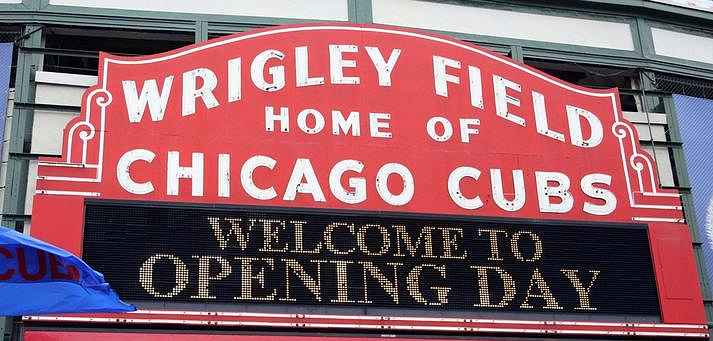
See listing of Recent and Most Popular articles on the Home Page
Arts & Entertainment
Category: History / Topics: God • Government • History • Media • Movies • Prayer • War
The Forgotten Sunday
by Stu Johnson
Posted: January 15, 2018
Without it Dunkirk would have been a disaster, not a miracle…
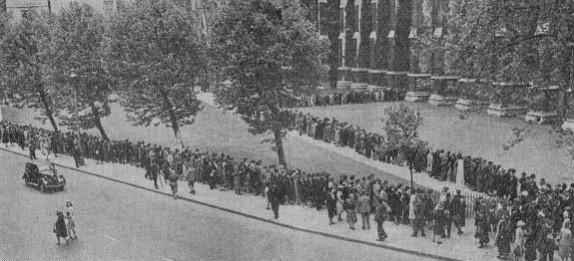
|
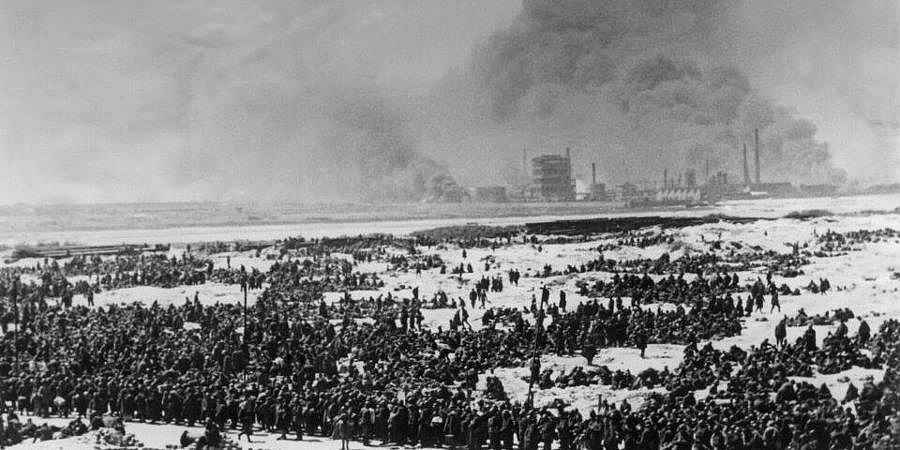
|
| People lined up for Day of Prayer (L), soldiers awaiting rescue (R) | |
Following the release of the movie Dunkirk several months ago, Greg Asimakoupoulos wrote “The Missing Message in Dunkirk,” suggesting “what would have made a good movie great.” He was referring to the movie’s failure to mention the National Day of Prayer called for by King George VI for the Sunday before the evacuation began.
My wife and I recently went to see “Darkest Hour,” with a magnificent performance by Gary Oldman as Winston Churchill. While “Dunkirk” focused on the soldiers being rescued by an armada of private boats, “Darkest Hour” focuses on the role of Winston Churchill at the same point in history.
Churchill became prime minister following failed military operations that forced Neville Chamberlain to resign. The speed of the German advancement into France was grossly underestimated, leaving more than 300,000 British troops surrounded on the shores of the English Channel at Dunkirk, in northern France, not far from the Belgian border. With the horrendous losses in World War I still fresh in the minds of many in England, there was little desire to engage in another blood bath. As the synopsis on Internet Movie Database (IMDB) put it, “the fate of Western Europe hangs on the newly-appointed British Prime Minister Winston Churchill, who must decide whether to negotiate with Hitler, or fight on against incredible odds.”
The movie depicts the anguish of making that decision. At one point, Churchill takes his secretary into the map room, with colored push pins showing how desperate the situation was. The Germans, it appeared, were in position to easily annihilate the British Army. “It will take a miracle,” he told her, to avoid certain disaster.
Indeed, a miracle did occur, and the movie depicts two aspects of it. First, Churchill convinced King George to call upon the seafaring heritage of the island nation to assemble a huge fleet of craft of all sizes to evacuate the stranded army. Second, Churchill is depicted as having an encounter with people in the London subway that demonstrates their resolve to “never, never, never” give in to Hitler. But, just as in “Dunkirk,” the film fails to mention a critical element.
While Darkest Hour makes mention of King George’s appeal for water craft, the king also appealed to the nation for a National Day of Prayer to be held May 26, 1940. According to a 2015 article on Anglican.ink by John Willans, “National Day of Prayer at the time of Dunkirk 1940”:
In a national broadcast he instructed the people of the UK to turn back to God in a spirit of repentance and plead for Divine help. Millions of people across the British Isles flocked into churches praying for deliverance and this photograph shows the extraordinary scene outside Westminster Abbey as people queued for prayer. Two events immediately followed. Firstly, a violent storm arose over the Dunkirk region grounding the Luftwaffe which had been killing thousands on the beaches. And then secondly, a great calm descended on the Channel, the like of which hadn’t been seen for a generation, which allowed hundreds of tiny boats to sail across and rescue 335,000 soldiers, rather than the estimated 20-30,000. From then on people referred to what happened as “the miracle of Dunkirk”. Sunday June 9th was officially appointed as a Day of National Thanksgiving.
In a July 2017 post on premierchristianity.com, J. John posted “How a day of prayer saved Britain at Dunkirk”
On 10th May 1940, Hitler unleashed a military onslaught on France and Belgium. Within days the British Army – outmanoeuvred and unprepared – along with soldiers of other Allied nations, found themselves with their backs to the sea and hemmed in by enemies. The German High Command was able to boast with confidence that its troops were 'proceeding to annihilate the British Army'. That the total destruction of an entire army was imminent was a view shared by many in the military and political leadership of Britain. Prime Minister Winston Churchill found himself preparing to announce to the public an unprecedented military catastrophe involving the capture or death of a third of a million soldiers.
But it didn’t happen. On 23rd May, King George VI requested that the following Sunday should be observed as a National Day of Prayer. Late on the Saturday evening the military decision was taken to evacuate as many as possible of the Allied forces. On the Sunday, the nation devoted itself to prayer in an unprecedented way. Eyewitnesses and photographs confirm overflowing congregations in places of worship across the land. Long queues formed outside cathedrals. The same day an urgent request went out for boats of all sizes and shapes to cross the English Channel to rescue the besieged army, a call ultimately answered by around 800 vessels.
Yet even before the praying began (in my experience, prayer often works like that) curious events were happening. In a decision that infuriated his generals and still baffles historians, Hitler ordered his army to halt. Had they continued to fight, the destruction of the Allied forces would have been inevitable and the war would have taken a different, darker and more terrible path. Yet for three days the German tanks and soldiers stood idle while the evacuation unfolded.
Not only so, bad weather on the Tuesday grounded the Luftwaffe, allowing Allied soldiers to march unhindered to the beaches. In contrast, on Wednesday the sea was extraordinarily calm, making the perilous evacuation less hazardous. By the time the German Army was finally ordered to renew its attack, over 338,000 troops had been snatched from the beaches, including 140,000 French, Belgian, Dutch and Polish soldiers. Many of them were to return four years later to liberate Europe.
Now you could argue it was all a coincidence, but I think not. It certainly wasn’t considered so at the time. Sunday 9th June was declared a National Day of Thanksgiving and, encouraged by Churchill himself, the phrase 'the miracle of Dunkirk' began to circulate.
A BBC account on “Britain in the Early Years of World War Two” makes fleeting reference to the Day of Prayer. The service in Westminster Abbey was broadcast live by the BBC. A short newsreel clip from British Pathe shows the scene at Westminster Abbey (at which the photo above was taken), with Winston and Clementine Churchill, Neville and Mrs. Chamberlain, Queen Wilhelmina of Holland and King George VI and Queen Elizabeth (later Queen Mother) arriving at the abbey, along with other dignitaries. The narration describes the scene and sets a tone typical of that time period (including many of the remarks by U.S. President Franklin Roosevelt):
The Empire responds to the King’s call. At Westminster Abbey, heart of the Empire, the statesmen, the soldiers, the ambassadors, and hundreds of ordinary men and women join the mighty congregation. Her majesty Queen Wilhelmina of the Netherlands arrives a few moments before their majesties [King George VI and Queen Elizabeth]. No one here today could foresee the grave news that has come from Belgium. All the more, it is well for us to show the world that we still believe in divine guidance. In the laws of Christianity may we find inspiration and faith for this solemn day.
TIME magazine on April 7, 1941 reported:
British clergymen and newspapers commented last week on certain possibly metaphysical aspects of World War II:
Since the beginning of the war, Great Britain has observed two national Days of Prayer.
The first was the dark Sunday, May 26, 1940, when the fagged-out British Expeditionary Force was fleeing under torrential Nazi fire toward Dunkirk beach. Five days later most of that Army got safely home through the fogs off Dunkirk.
The second Day of Prayer was Sunday, March 23, 1941, when Adolf Hitler's Balkan advance seemed to have the implacable flow of volcanic lava. Four days later came the upset in Yugoslavia. The... [I don’t have a TIME account, so that’s as much as I could get for free!]
Since the days depicted in Dunkirk and Darkest Hour, the role of faith in Europe has declined precipitously and while it is still strong in the U.S., it has been in decline. No wonder, some would say, that these two films would focus on the human spirit, but ignore the divine. Was the “miracle of Dunkirk” really an act of a responsive God, or the attribution to God of events that transpired coincidentally?
As John WIllans points out:
National Days of Prayer were held at critical times throughout the War. After each one, God responded with His Blessing and protection. Looking back, the Bishop of Chelmsford Dr H.A. Wilson wrote, “If ever a great nation was on the point of supreme and final disaster, and yet was saved and reinstated it was ourselves…it does not require an exceptionally religious mind to detect in all this the Hand of God.”
While an annual National Day of Prayer is still held in the United States, they are a thing of the past in England. As one blogger asked, “Why does the Queen no longer call the nation to prayer?”
It is ironic that the United States, with its strict separation of church and state, has presidents which call the nation to prayer. But the United Kingdom, with an Established Church and a Head of State who is also Supreme Governor of the Church of England, no longer calls its people to prayer.
This 2009 blog includes the text of the proclamation by President Barack Obama for Days of Prayer and Remembrance, Friday, September 4 through Sunday, September 6, 2009, to commemorate the victims of the September 11, 2001 terrorist attack on the United States.
Read the full entries for the links included throughout this article, then ask yourself whether the movies were right to leave out the 1940 National Day of Prayer, or whether such an omission actually sheds light on who we are today. Following a century filled with the horrors of war and disease (the influenza epidemic of 1918 was exacerbated by World War I and accounted for more deaths worldwide than the war itself), many people no longer believe in God or feel he is not active in human affairs. That leads me to ask, if God is real, has he abandoned us or have we abandoned him?
More on popular beliefs about God and religion can be found on my InfoMatters blog and the Religion in America page on my website, sjassociates.com. Some have appeared as articles here on SeniorLifestyle, as well.
Search all articles by Stu Johnson
Stu Johnson is principal of Stuart Johnson & Associates, a communications consultancy in Wheaton, Illinois. He is publisher and editor of SeniorLifestyle, writes the InfoMatters blog on his own website and contributes articles for SeniorLifestyle. • Author bio (website*) • E-mail the author (moc.setaicossajs@uts*) • Author's website (personal or primary**)* For web-based email, you may need to copy and paste the address yourself.
** opens in a new tab or window. Close it to return here.
Posted: January 15, 2018 Accessed 1,223 times
![]() Go to the list of most recent Arts & Entertainment Articles
Go to the list of most recent Arts & Entertainment Articles
![]() Search Arts & Entertainment (You can expand the search to the entire site)
Search Arts & Entertainment (You can expand the search to the entire site)
![]() Go to the list of Most Recent and Most Popular Articles across the site (Home Page)
Go to the list of Most Recent and Most Popular Articles across the site (Home Page)
 Loading requested view...
Loading requested view...